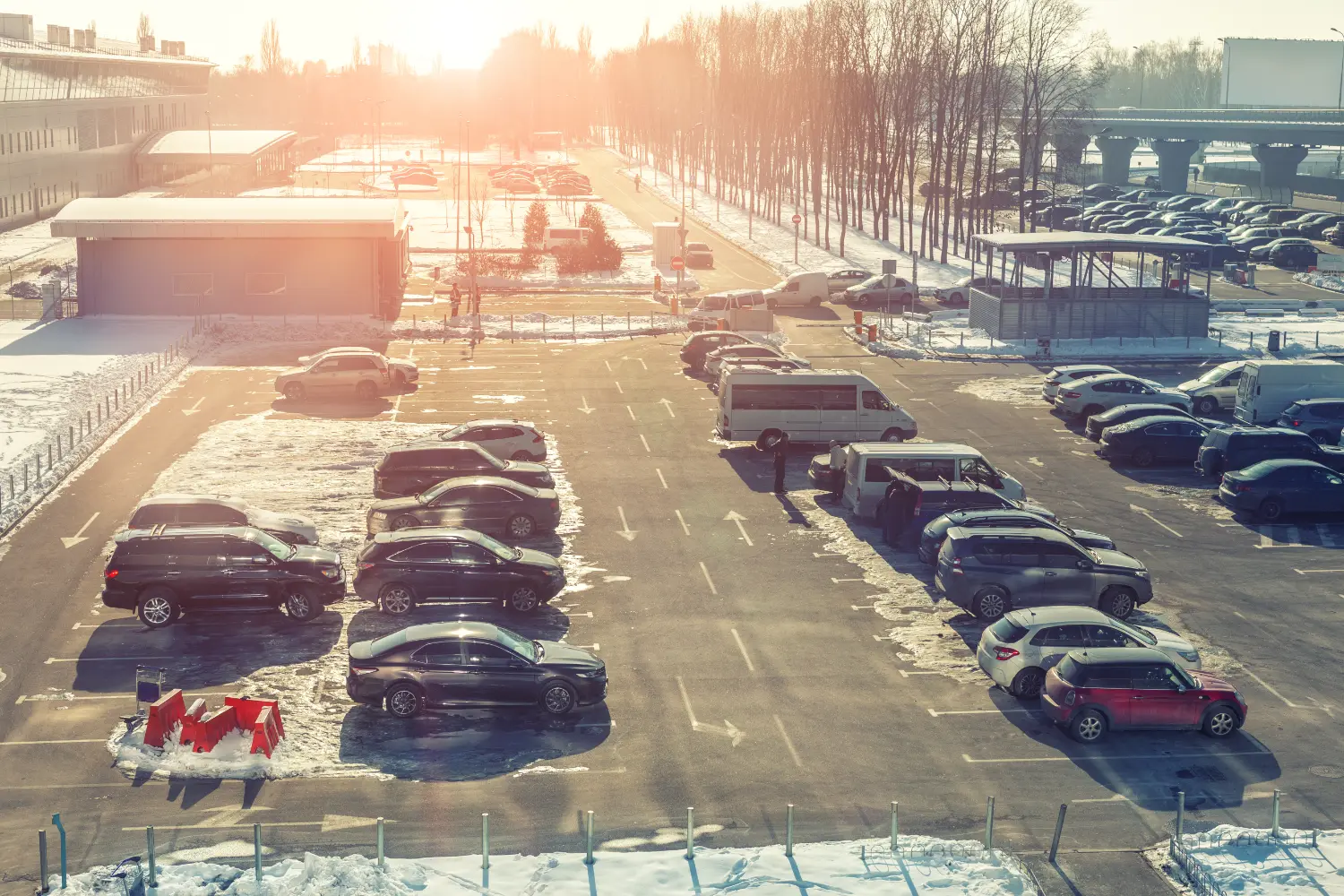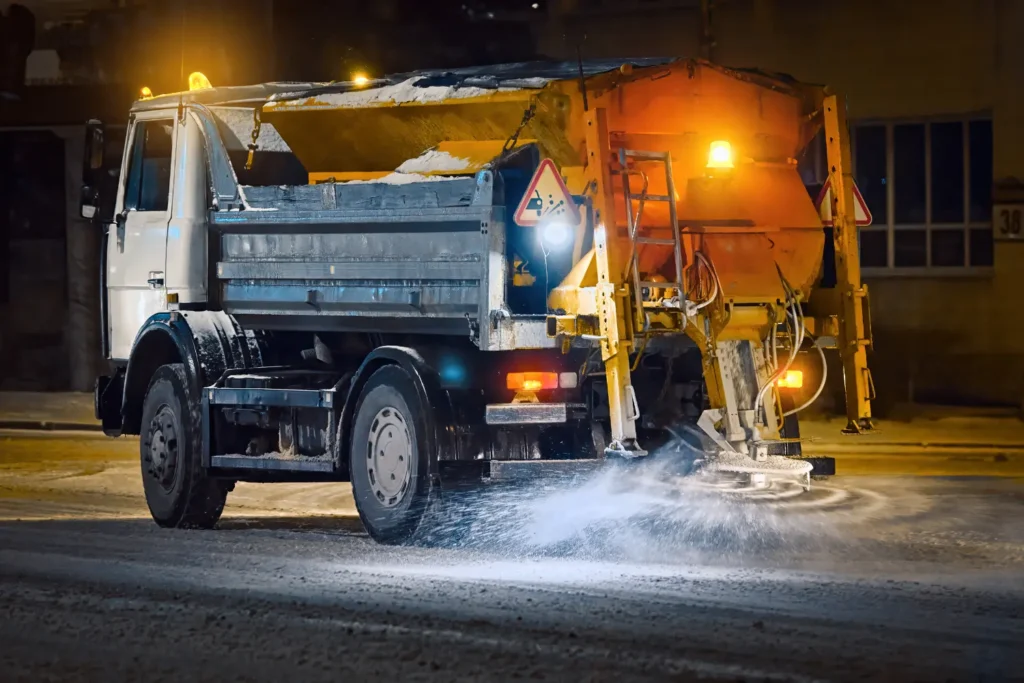Winter.
A time of picturesque snow, cozy fires, and Christmas dinners. Oh, and of course cold, bitter temperatures, adverse weather conditions, icy roads, and more.
If you want to enjoy the best parts of the winter season, it’s important to properly prepare your properties, businesses, and roads to face the challenges of winter winds and heavy snowfall.
There’s a lot to think about.
From heating and plumbing to insulation, roofs, and ensuring outdoor areas remain safe and accessible, property managers and business owners have many different things to prepare ahead of winter.
Luckily, we have a complete breakdown of everything you need to address before the cold weather hits, along with the best ways of preparing your property to face winter.
Inspect and Repair Roof and Gutters
One of the most vital elements of your property, your roofs and gutters must be well maintained and thoroughly inspected before winter—especially for any buildings with flat or low-slope roofs.
This means checking for cracks, blisters, or any separations in the roofing material to ensure there is no damage or potential weak spots.
As water expands when it freezes, these cracks can get pushed open during winter cold spells, making it essential to check everywhere, including areas around vents, chimneys, and other protrusions to ensure everything is in order.
If any damage is spotted, order prompt repairs from professionals to prevent extensive water damage during the winter.
If you’re still concerned after fixing the problem, it can be worth asking your contractor to conduct a more thorough inspection.
Don’t Forget The Gutters
Your gutters must also be in good condition to protect against winter’s potential water damage.
This means that in addition to checking your roofs, you should clean out your gutters and fix any damage well before winter arrives. This will help prevent water damage and ice dams, direct water away from the building, and ultimately protect your property.
Winterize Plumbing Systems
Burst pipes only get more challenging to repair in winter weather, so you’ll want to get things fixed and prepared well beforehand.
Start by identifying and insulating any exposed pipes, focusing on any in unheated areas or nearby exterior walls, as these will be the most susceptible to damage from water freezing.
You can use foam pipe insulation or heat tape for extra protection.
Moving outside, it’s equally important to drain and shut off all water to external taps and irrigation systems to prevent winter damage.
If you manage a larger property, you may need to coordinate with other teams to ensure that every element is effectively winterized.
No matter the size of your property, conducting regular maintenance and hiring professionals to perform thorough inspections is one of the most effective ways to prevent plumbing problems before they get out of hand.
Prepare HVAC Systems
There’s one way to stop freezing damage, and that’s to fight it with fire – i.e., heating.
Ensuring your HVAC (Heating, Ventilation, and Air Conditioning) systems are all in order is one of the best ways to get through winter unscathed, both for residential and commercial buildings.
Make sure to clean out or replace filters, check your fuel lines and connections, and test to see if all components are working correctly.
If you have large-scale HVAC systems, paying particular attention to your boiler efficiency and overall distribution systems is important to ensure heat is distributed evenly across your property.
While you likely won’t be using any air conditioning, remember to clean and cover outdoor units to protect them from snow and ice during the winter.
Enhance Insulation and Sealing
Ideally, everything should be insulated, but for UK commercial properties, the key places to prevent heat loss are roof spaces, walls, and windows and walls.
Look out for attic spaces, especially as heat rises and can easily escape through under-insulated roofs. Conduct a full energy audit to find all the most demanding areas for insulation.
Whenever possible, make sure to seal windows and doors to prevent drafts, and consider installing double or triple-glazed windows.
These more energy-efficient windows and doors are especially useful for large commercial properties, helping massively reduce heat loss during winter.
Maintain Outdoor Areas and Parking Lots
As the property owner, you are liable for all areas of your property.
That means if someone slips on ice or trips on an un-signed hazard, you could be facing insurance claims.
This is why maintaining your outdoor areas and parking spaces is more important than just keeping up appearance – it’s a vital part of winter preparation.
Secure or store all outdoor furniture, unneeded signage, and of course any equipment that could be damaged by adverse winter weather such as snow, ice, or strong winds.
You should also inspect all surfaces across your property for cracks and damage, making sure to repair them or apply sealant well before winter weather sets in, protecting against the same water damage that could break apart roofs or walls when it freezes and expands.
It’s also important to put up high-visibility signage for important areas such as driveway edges, parking areas, or steep drops.
This helps guide snow removal efforts, as well as protect employees or the general public.
Often overlooked, you also need to trim trees and shrubs that are near buildings or critical power lines. This prevents damage from snow-laden or wind-blown branches that may break off or go flying in winter weather.
Conclusions
No matter how early you think it is, the earlier the better when preparing your property for winter.
While it may seem like a lot of work, fixing your roofs, inspecting your plumbing and heating, and securing your outdoor areas ahead of time will save you a lot of time, effort, and pain in the long run,
Getting ready for the winter months? Contact AccuGrit today to see how we can help keep you gritted and ready for any winter weather.


